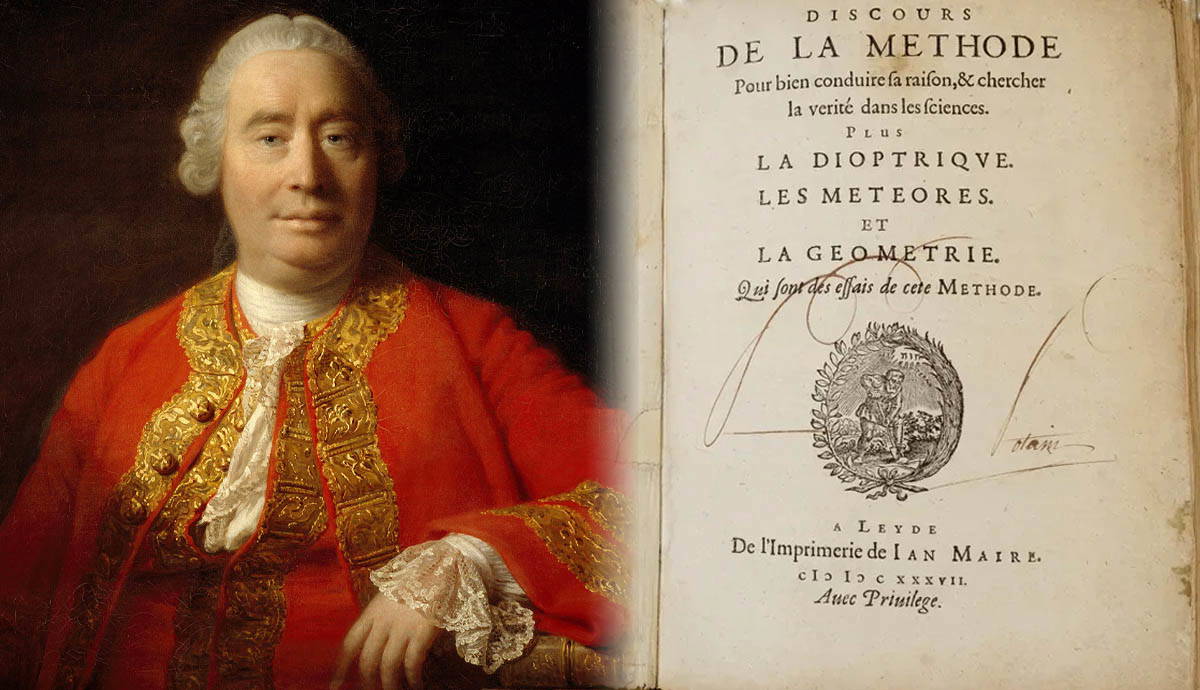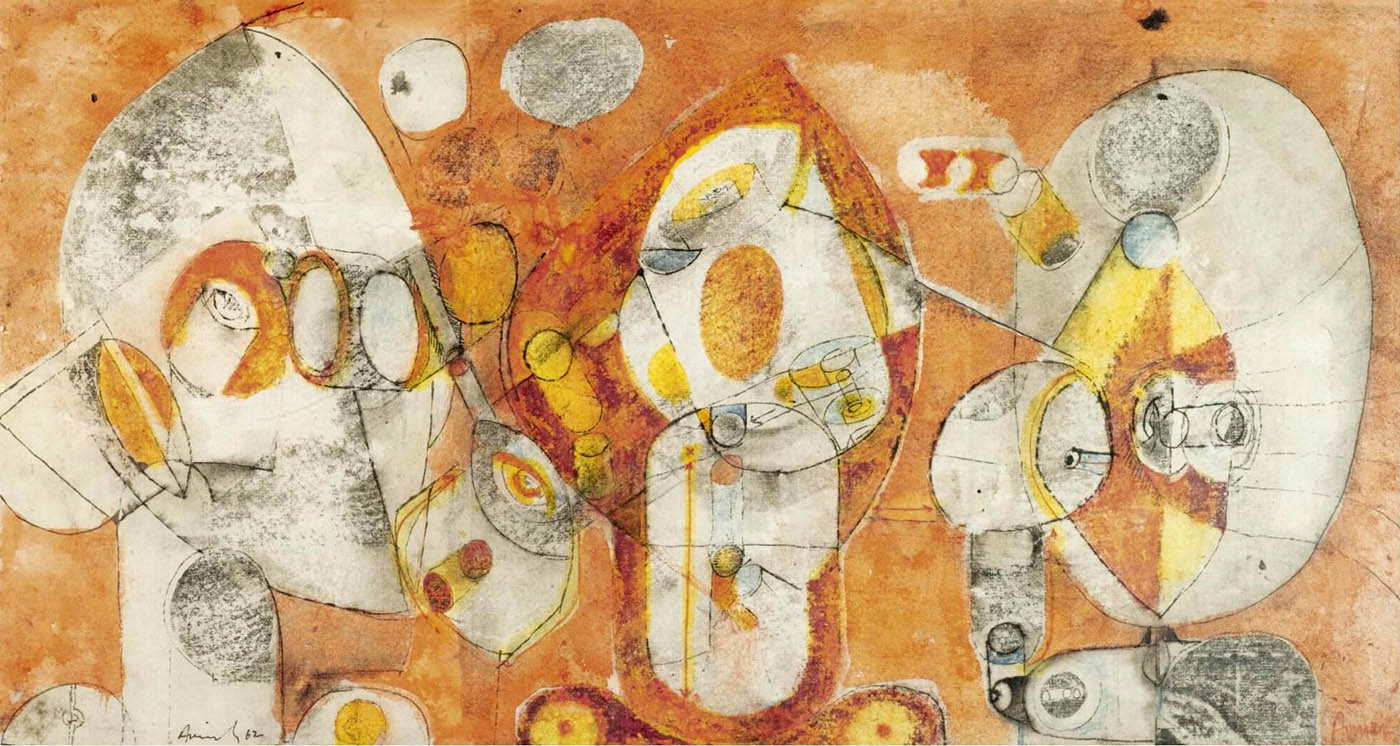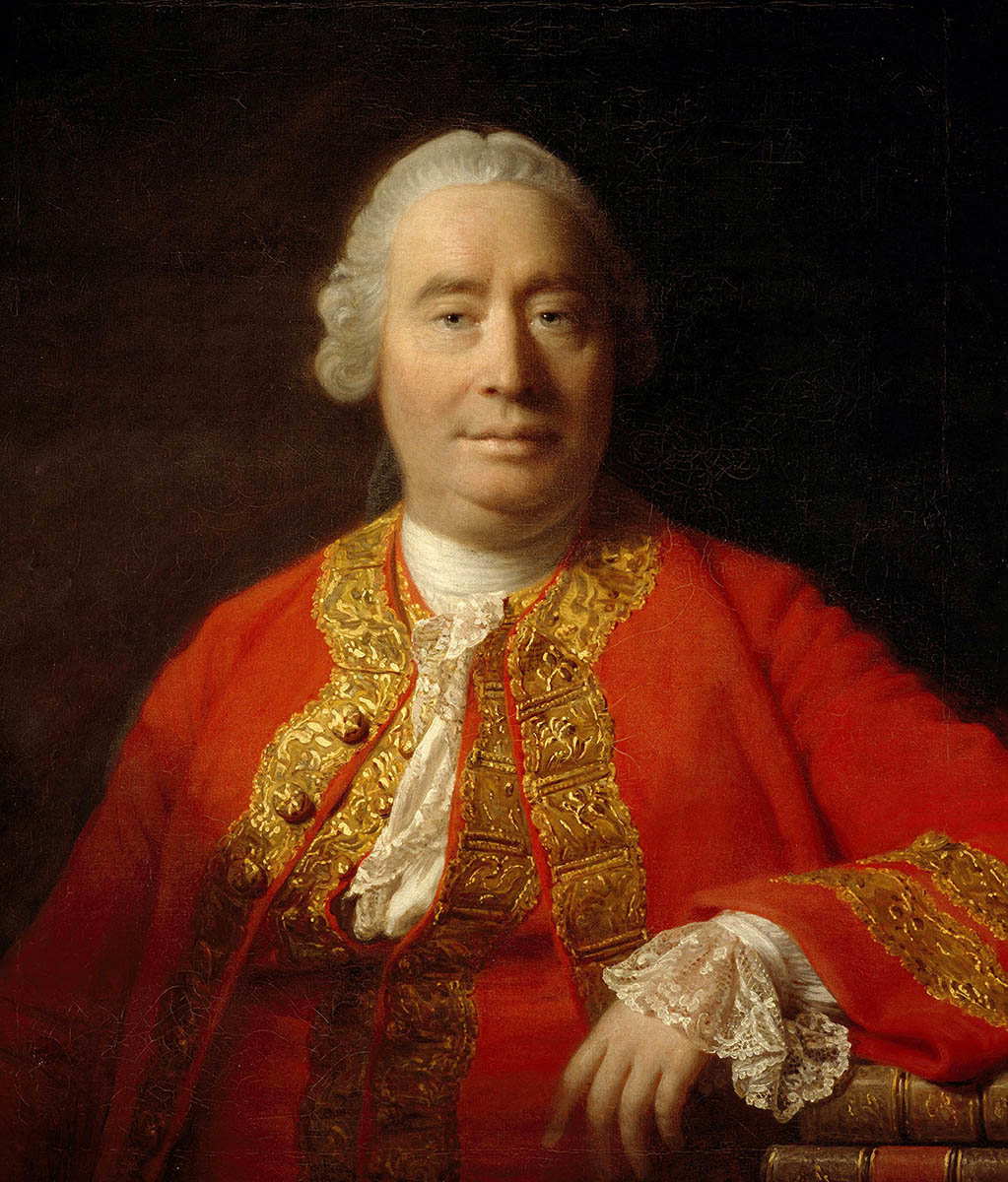
David Hume is considered to be one of the most important Scottish philosophers. His philosophy is systematic and focused, and has directly influenced several great thinkers. The main philosophical attitudes he based his ideas on are empiricism, skepticism, and naturalism. What this means is that what we know is ultimately rooted in experience (empiricism); that all belief has to be thoroughly questioned before it can be accepted as knowledge (skepticism); and that the world and human experience do not require supernatural explanations (naturalism). By combining these three basic concepts, Hume came to some illuminating conclusions about knowledge, causation, and the Self. His ideas stirred up controversy during his day, but proved to have a long-lasting influence on philosophers to come.
David Hume’s Life: A Controversial Thinker

David Hume was born in the early 18th century in Scotland, in a moderately wealthy family. His mother noticed that he was gifted at a young age and encouraged him in his studies; his interests settled on philosophy. He published his first work (and arguable magnum opus), titled The Treatise of Human Nature, before his thirtieth birthday – the book was not very well received and got little attention from the philosopher’s contemporaries. It is now considered one of the most influential works in the history of western philosophy. His analysis of the notion of causation famously changed the direction of Kant’s work, who admitted that “…it was the remembrance of David Hume which, many years ago, first interrupted my dogmatic slumber”.
Hume suffered many attacks over the course of his life due to his presumed atheism and the supposed heresies contained in his works, which were described as “dangerous.” He was directly accused of irreligiosity – which was considered unacceptable at the time – when he applied for the position of Chair of Moral Philosophy at the University of Edinburgh. Hume tried finding work at a university several more times, but his reputation was always in the way. The philosopher found other ways of supporting himself – he worked as a librarian and as a personal secretary for most of his life.
The Enquiry: Philosophy As An Empirical Endeavour

The Enquiry Concerning Human Understanding is one of David Hume’s principal and most-read works. The book, published in 1748, was Hume’s attempt at rewriting the earlier Treatise of Human Nature, which had not been as successful as the author had hoped; Hume believed that it was too “juvenile,” long and unfocused. Though they are separated by nearly ten years, the ideas presented in both books are very similar; the Enquiry is much shorter, more streamlined and easier to read, which ensured its immediate popularity and a long-lasting impact.
Get the latest articles delivered to your inbox
Sign up to our Free Weekly Newsletter
Influenced by natural science’s successes and in particular by Isaac Newton’s then-recent discoveries, David Hume wanted to provide an empirical analysis of human nature. More specifically, the philosopher proposed that an empirical analysis of our minds was necessary in order to lay a foundation for all other science and philosophy. In simpler terms, Hume wanted to understand and explain what our mental faculties are, as well as how they function. This would clarify how we form beliefs, whether and in which circumstances they are justified, and what makes us vulnerable to mistakes.
The Contents Of Our Mind

Due to his empiricism, David Hume wanted to base his analysis exclusively on observation and experience. When it comes to analyzing the human mind, he believed that the object of our empirical observation should be perceptions, which can be understood as any type of mental content. For example, my direct experience of a red apple is a perception; a person’s childhood memories are a perception; anger is a perception; and so on.
Hume believed that all of our mental content, i.e. all perceptions, could be divided into impressions and ideas; the first ones can be characterized as resembling feelings (including through the senses) while the second ones resemble thinking. A key principle in Hume’s system is that ideas are based on simple impressions; in other words, all of our inner-world is ultimately derived from simple sense-experiences and basic feelings of pain and pleasure.
An interesting consequence of this framework is that Hume believes our imagination, and thinking in general, is limited to the recombination of things we actually experienced – it is impossible to imagine a taste we haven’t tasted, or to envision a color we haven’t seen; but we can easily imagine an apple which tastes like watermelon because we can separate and combine previous experiences as we please. We cannot go beyond our experience.
The Principles Of Association

In his investigation of our mental faculties, David Hume noticed that we are prone to associate certain ideas in specific patterns; he viewed these principles of association as the basic mechanisms of action of the human mind. He isolated three such principles: we seem to associate ideas that resemble each other; we also associate ideas that are closely related in terms of time and/or space; and finally, we associate ideas that bear a causal relation to each other. Hume was particularly interested in what cause and effect really are, and specifically in how we come to know that two things are causally related.
He noticed that knowledge of causal relations does not seem to be based on “reason,” like mathematical and logical truths are; denying a logical truth leads to contradiction (for example, saying that it is both raining and not raining seems absurd), but denying a necessary causal connection is never inconceivable. If I bite a ripe peach it usually causes a sensation of sweetness, but it is not contradictory to imagine that the effect might be wildly different – I can easily conceive of it being spicy instead. Unfortunately, this means that there is no way to prove that a necessary causal relation exists between two events. Why, then, do we believe that some things are causally related?

Once again relying on our observable experience, Hume concludes that the notions of cause and effect are based on past impressions. In practical terms, if we notice that two events often follow one another, we form a habit that makes us expect the occurrence of the second event whenever we experience the first event. For example, in the past I have always experienced heat whenever I approached a fire; after having this same experience multiple times, I will start to associate heat with fire, and eventually I will start believing that one causes the other. This basic mechanism of the mind explains how beliefs about causal relations are formed.
Loosening The Link Between Cause And Effect

David Hume’s philosophy of causation has an unorthodox result: there is no reason to believe that cause and effect are necessarily connected. There is no power or force out there in the world holding causes and effects together; causality is just our mind noticing that certain types of events seem to usually follow one another based on past experiences. It seems inevitable that hitting an egg will break it, but it is not; causal relations cannot be proved to hold necessarily.
Hume’s takes on the non-necessary nature of causation were quite controversial at the time, as they clashed with many of his contemporaries’ fundamental assumptions. 18th-century philosophers believed that causation was guided by certain principles – one of which is the notorious ex nihilo nihil fit, i.e. “nothing comes from nothing” – which were essential for proving God’s existence. Hume’s ideas were incompatible with much of what was traditionally believed to be the order of the world as God made it. Hume also explicitly argued against miracles in both the Treatise and the Enquiry. Unfortunately, this led to accusations of heresy and atheism which significantly stifled the philosopher’s career.
David Hume’s Conception Of The Self As A Collection Of Experiences

In the Enquiry, David Hume also proposed a novel and influential view of the Self. In wondering what the Self is, Hume – true to his methodology – asks us to consider whether and how this concept is justified by our experience. He quickly concludes that there seems to be nothing corresponding to the Self in our experience, as the Self is what is supposed to hold our experiences together and should, as such, be different from experience itself.

Each person, then, should be understood simply as “a bundle of perceptions”, a series of sensations and thoughts succeeding one another; there is no soul (or other underlying entity) holding them together. This basic idea spawned the “bundle theory” of personal identity, which has proponents to this day. Of course, this theory also created problems for Hume, as it invalidated the existence of an immortal soul, one of the key assumptions of Christianity. Contemporaries used this as further evidence of the philosopher’s atheism.







